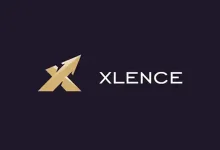Massachusetts Sues Kalshi Over Unlicensed Sports Betting


What the Lawsuit Alleges
Investor Takeaway
How Kalshi Defends Its Model
Kalshi, which recently resolved a long battle with the Commodity (CFTC), argues that its markets are federally regulated financial contracts and not gambling products. The CFTC had previously challenged Kalshi’s sports contracts but ultimately withdrew opposition earlier this year. The lawsuit in Massachusetts reopens a fresh regulatory front just months later.
One complicating factor: former CFTC commissioner Brian Quintenz, a Kalshi board member, has been nominated by President Donald the CFTC. This adds political weight to the case, as it could influence future regulatory interpretations at the federal level.
In its response, Kalshi said Massachusetts is “trying to block Kalshi’s innovations by relying on outdated laws and ideas,” stressing that prediction markets represent a “critical innovation of the 21st century.”
Why the State Is Pushing Back
The Massachusetts AG’s office claims Kalshi is employing behavioral design features borrowed from gambling psychology. These include interface elements that highlight potential payouts in bright green font—a color associated with securety and success—while displaying odds in black. Prosecutors argue such design “encourages high-risk transactions by emphasizing reward while obscuring risk.”
Campbell said in a statement that if Kalshi wants to operate in the sports gaming space, it must obtain a license. She emphasized the risks of gambling addiction and financial harm, noting that strict oversight is needed to protect public health.
Investor Takeaway
What’s Next for Prediction Markets?
Prediction markets have surged in popularity, fueled by platforms like Kalshi and crypto-native rival Polymarket. While markets on elections and economic data remain Kalshi’s core offering, the addition of sports contracts drew scrutiny. The Massachusetts lawsuit may influence how other states approach similar platforms, potentially creating a patchwork of restrictions despite federal recognition.
For investors and users, the case highlights the fragile regulatory balance . A favorable outcome for Massachusetts could restrict Kalshi’s business model, while a ruling in Kalshi’s favor could accelerate mainstream adoption of event contracts. Either way, the decision will likely shape the in the U.S. for years to come.







